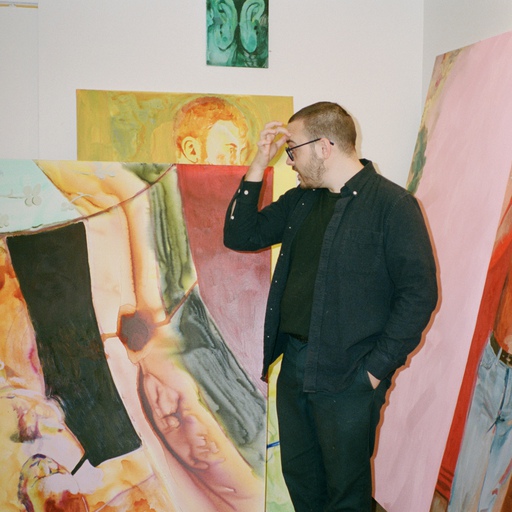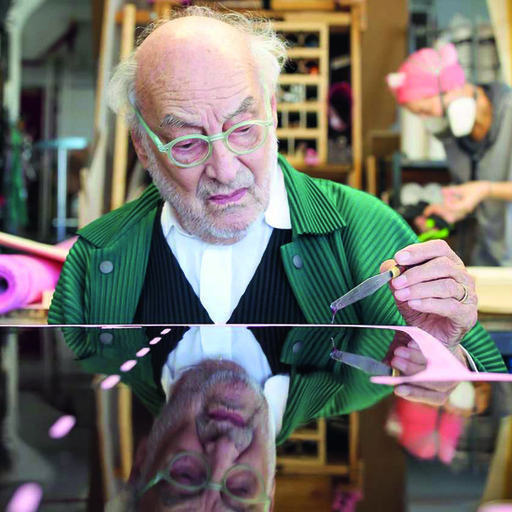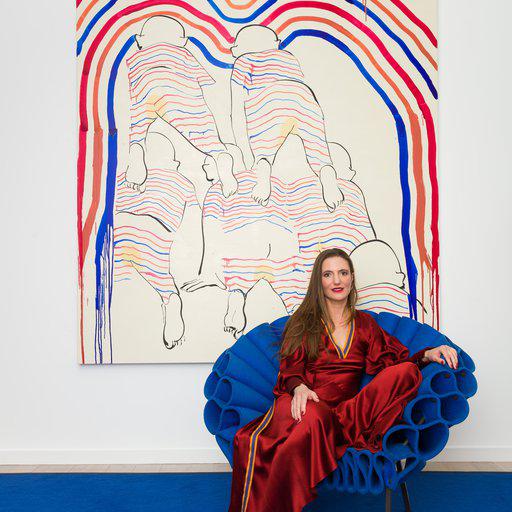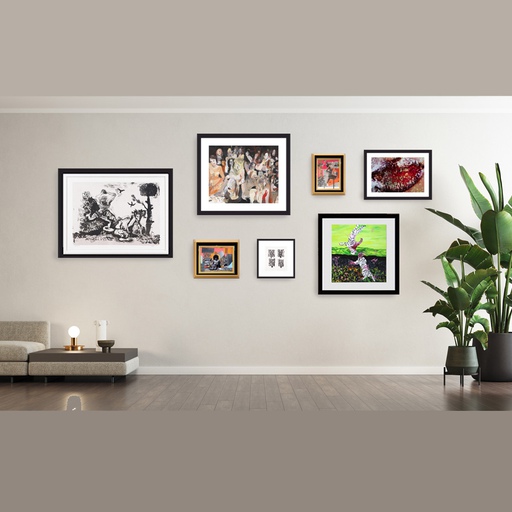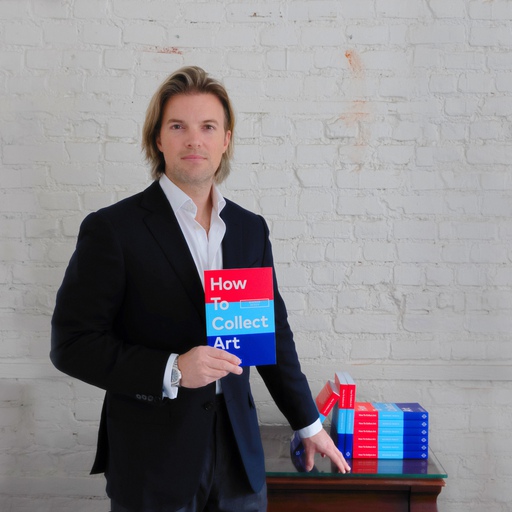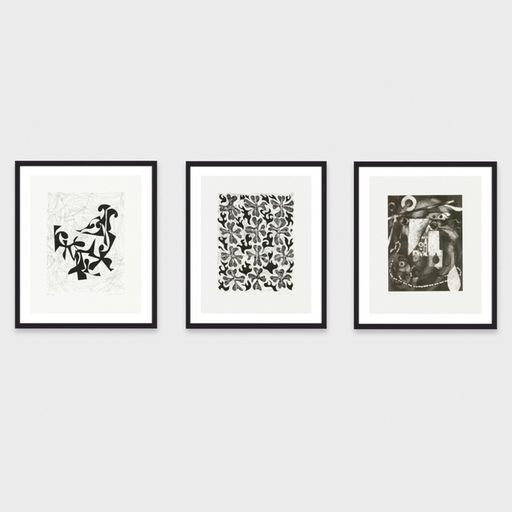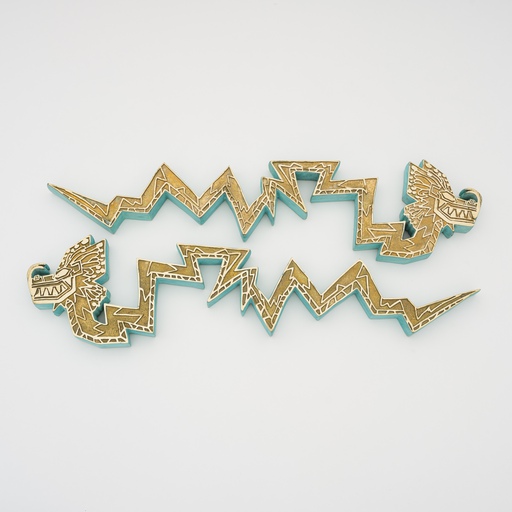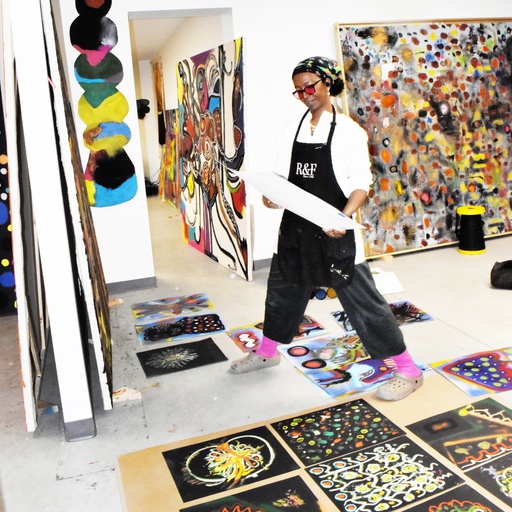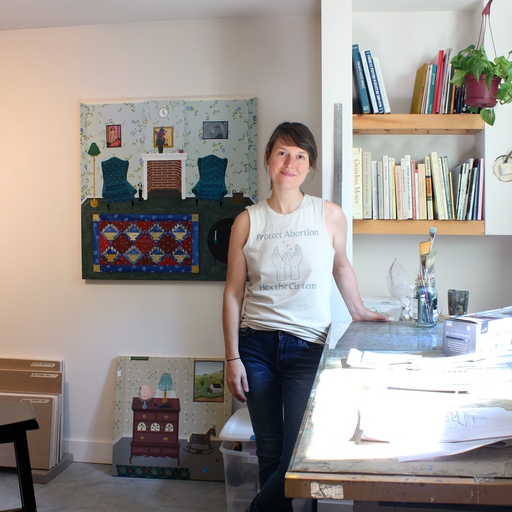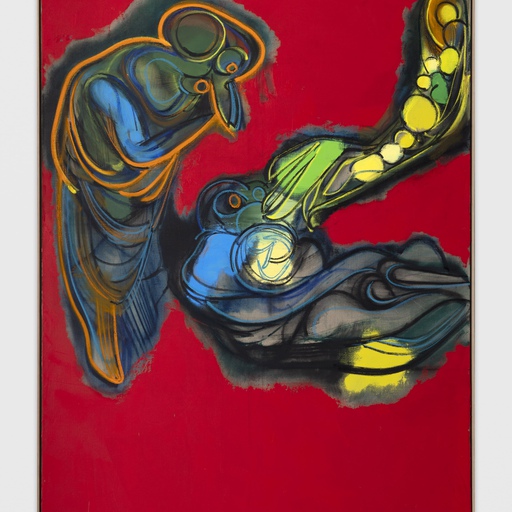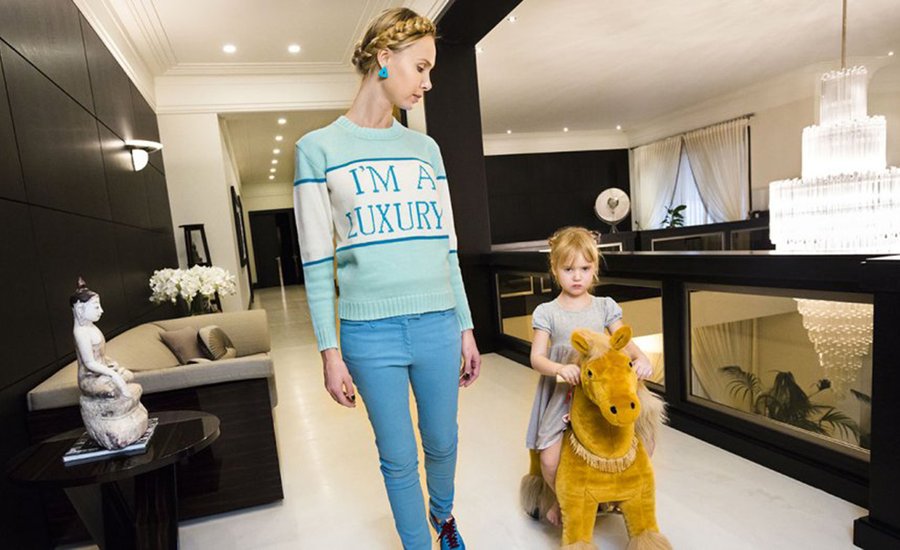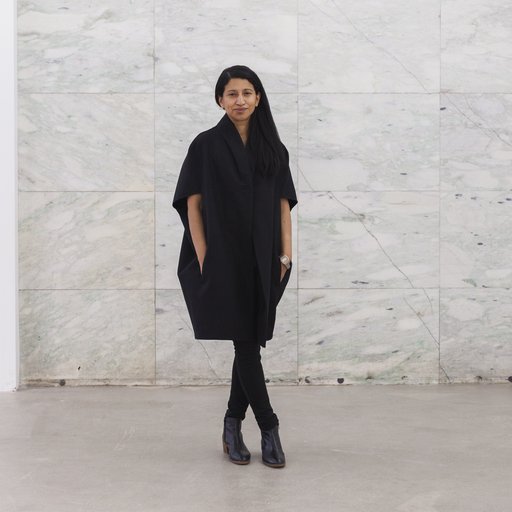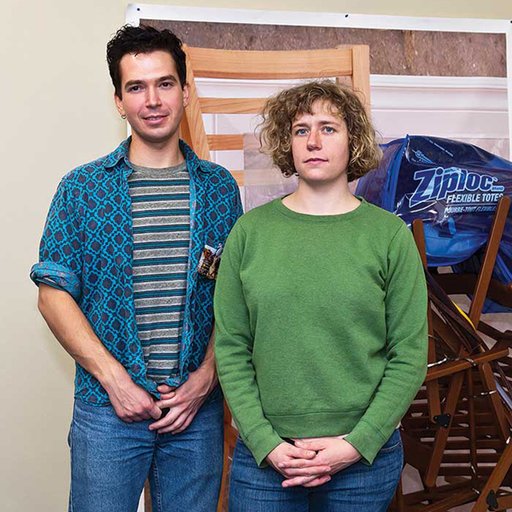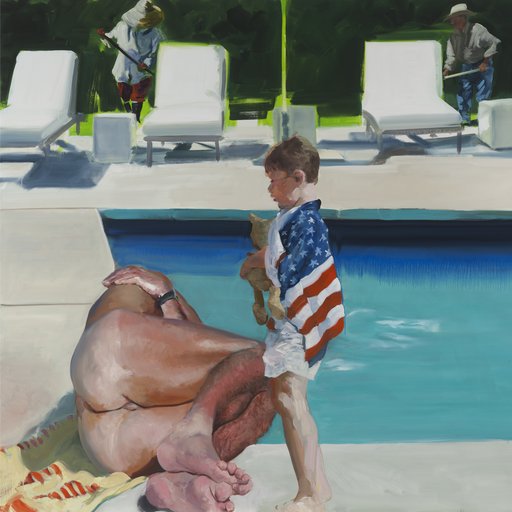Taken out of context, a photograph by Lauren Greenfield could be mistaken for an artful snapshot on TMZ or Star Magazine, documenting the over-the-top glitz and glamour on display at Hollywood parties and mansions. But seen within the breadth of Generation Wealth , the photographer and documentarian’s newly published photo-book, Greenfield’s photographs function more like a sociological study or an illustrated field guide. Documenting “the influence of affluence,” Greenfield captures a cultural zeitgeist formed by the cult of celebrity, commodity fetishism, beauty pageant culture, plastic surgery, and the objectification of women.
These topics aren’t new for Greenfield, though Generation Wealth can be read as an overarching thesis tying together themes she’s explored in depth in pervious projects. Her 2012 film The Queen of Versailles (for which Greenfield won the US Directing Award at Sundance) followed Jackie Siegel (the titular “Queen”) and her billionaire husband David as they struggled to build their dream, 90,000-square-foot home during the 2008 financial collapse. In the documentary THIN (2006), Greenfield follows women with eating disorders while they recover in a treatment facility in Florida. And her book Fast Forward: Growing Up in the Shadow of Hollywood (1997) documents the lives of Los Angeles teenagers, filled with the trappings of expensive clothes and fancy cars.
Generation Wealth , published by Phaidon just last month, comes soon after the election of Donald Trump, a man who’s success and popularity can be attributed to exploiting many of the themes explored in Greenfield's work. After his election, many who hadn’t voted for him were shocked, asking, 'how could this happen?' The answer to this question lies between the covers of Generation Wealth . Greenfield, with beauty and artistry, reveals what we as a society have come to value—and it's not morality.
Here, Artspace’s editor-in-chief Loney Abrams speaks with Greenfield about the ‘fake it ‘till you make it’ mentality, about why sexism is so wrapped up in the display of wealth, and whether or not there’s any hope for finding a finish line to the rat race.
Much of your work surrounds the cult of celebrity and the lives of the rich and famous. With the paparazzi, tabloids, and TMZ, the rich and famous are some of the most photographed people in the world. As a fine art documentary photographer, why choose these people—who are already so visible to the public—as your subjects?
The idea of fame, and how it’s valued, is such an important part of my work. A chapter in my book called “Lifestyles of the Rich and Famous” is important because the one percent has a disproportionate influence on everybody else. The whole point of the book is about the influence of affluence. I actually tend to stay away from celebrities because they don’t grant me the kind of access and intimacy that I really need for the work. So, the meat and potatoes of the book is not rich people, but instead people who aspire for wealth, and not just wealth but the appearance of wealth—the idea of “fake it ‘till you make it.” It’s really about the influence of the rich and famous. Fran Leibowitz has a great quote about how we don't hate the rich because we always imagine that that will be us someday, so it's really about that aspect of the American Dream.
Do you think that this ‘fake it ‘till you make it’ mentality, and the conspicuous display of wealth that comes with that, might be stemming from the fact that class mobility is not as achievable as it once was in the past? In other words, because people can’t become as wealthy as they’d like, they go above and beyond to make it seem like they are, and to show off what they do have.
I think that's a really important point. The backdrop for that is the least social mobility that we've had since I think the '70s and greater and greater inequality––wealth being more in the hands of the few than ever before. There has been a cultural shift where the values of hard work and humility and discretion have transformed into a culture that values bling and celebrity and narcissism. So I do think that this kind of fictitious social mobility happens because for a lot of people, real social mobility doesn’t feel in reach. And also, we've lost the substance of what that social mobility meant. It used to mean making a contribution to society, a contribution to your family, a contribution to your community, and achieving something that would somehow alter the world. And I think that what has happened is that success is now seen in terms of the outward benefits of the kind of lifestyle it affords. What matters is making the money but not how you made it—the Kardashian effect. And [rapper] Future is a crazy example of that because Future, coming from the Magic City Nightclub where you throw thousands of dollars into the air and ‘make it rain’ even if you had nothing. Through doing this, he actually found his success. He's the one in the million who faked and made it through faking it. But I think for a lot more people the faking it is replacing the actual making it.
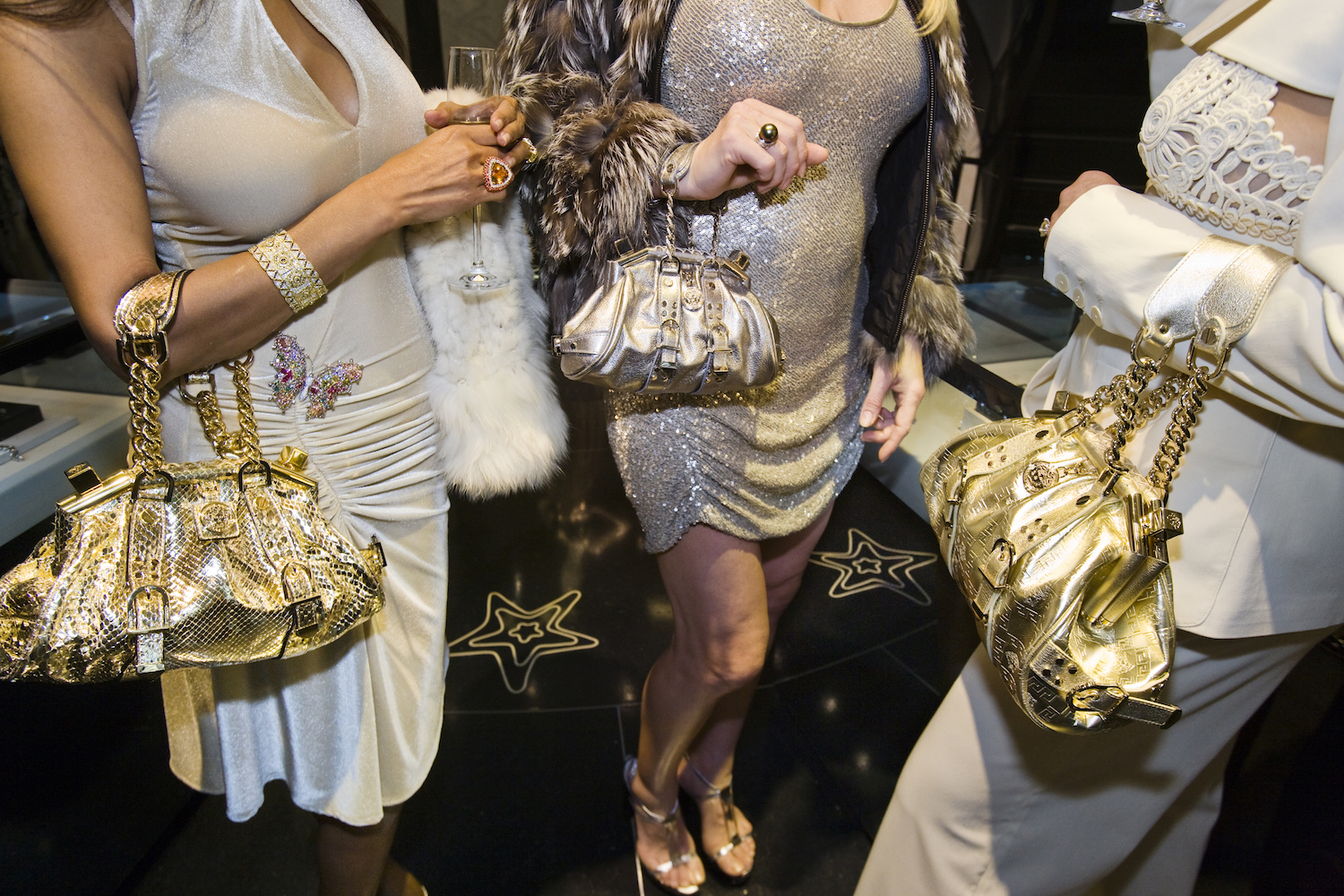
I want to ask you more about this shift that you talk about in the ‘70s. In the forward of your book, Juliet Schorr also talks about the shift that happens with the media during this time, when television programing starts focusing less on working-class families, and more on portraying more lavish lifestyles. Obviously later in the 2000s, this becomes even more apparent with Keeping Up With the Kardashians , The Real Housewives , Paris Hilton’s shows, etc. In the meantime, the social world shifted from being structured horizontally, where you might compare yourself to others in your neighborhood or your social world, to being structured vertically, where you compare yourself to people who are more wealthy than you are. All of this is happening during yet another shift where we see the gap between rich and poor widening. Do you think there's an eventual breaking point in this cycle? I mean, in your experience, have any of your subjects gotten fed up with the rat race? Or is this an endless, self-perpetuating cycle?
I felt a kind of urgency in doing this project; I felt like it needed to come out now even though I could have worked ten more years on it. As a big society, as a culture, this way of life is unsustainable. And I mean that in every level in terms of the environment, in terms of our communities, in terms of family, in terms of economics—none of it is sustainable if we stay on this path. But even though that's a kind of bleak situation I also feel hope from the individual and collective insights that I also documented. For instance, the moments of revelation where people realized that a change was needed. In a way, the financial crises of 2008 turned out to be that moment for me, and for a lot of the characters in the book. It was a terrible moment of crises and pain that also allowed you to see the errors in your ways and realize that change was necessary.
But I think the scary part is that in some cases we already know the unfortunate answer to whether that change is permanent and lasting or whether it's just a temporary reaction to the situation and once the suffering stops we go back to how we've been living. For example, I made a movie called The Queen of Versailles about the family that built that biggest house in America. At the end of the movie, [billionaire owner of “Versailles”] David Siegel talks about all of these lessons from the journeys he's been on. He says no one is without guilt, he sees his own role in that, and he says he shouldn't have built so much and if he’d been happy with owning just 16 resorts he would have been better off. He looses his $600 million building during the financial crises but then, when business comes back, he gets the land back for the house and continues building. And now, five years later, he's still trying to build the house. It's not that much further along than it was at the end of the movie but he's still trying to build it. So, I don't know that there is lasting change but on the other hand there's certainly a lot of moments of insight and I think that's why I do this work, to try to deconstruct the things we take for granted all around us, and to say it in a different way so that we see it in a different way. That's the possibility. It's kind of an apocalyptic future with a possibility for something different.

Generation Wealth documents a society that values celebrity, reality television, wealth, beauty, real estate, and the loss of ethics and morality. This is the society that elected Donald Trump for president. After doing this project, did Trump’s election come as a shock to you like it did for so many people, or did it make sense to you given everything you’ve learned from your work?
I wish I could say I predicted it but I would say I predicted it in retrospect. I was as surprised as everybody else. I had no idea that he could actually become president but when he did, I felt like the writing was on the wall, or the writing was in the pictures. Trump made his name by being a reality television star, and made his money through real estate and through tall, gold buildings with his name emblazoned on them, through trafficking in beauty pageants, and benefiting from the commodification of women. Even the ‘fake it till you make it’ idea resonates—the idea that we can elect somebody with no experience because he kind of looks the part.
And then I think he also represents a moral-neutral society where if the values are just money and success, it makes sense that a college-educated woman doing social work helping people with disabilities would give that up to become a prostitute if that means making the same amount of money in two days than she could make in a year. In my work I'm not criticizing her choice, I actually think her choice makes sense in the context of our values. So I'm really looking at our values, and in a way, Trump is a symptom of those values. So yeah, I think it's kind of unbelievable that Trump was elected, but on the other hand it's like, why are we surprised? We created this.
Generation Wealth really allows us to make sense of how this happened. It’s all right there.
The objectification of women comes up a lot in your book. What do you think the relationship is between the display of wealth and sexism?
I've looked at gender in a lot of different ways before in my work. I did a book called Girl Culture about how girls express their identity through their body and also the effects of advertising on girls. Thinking about this in the context of Generation Wealth allowed me to take it to the next level and think about how girls are sold to and how they themselves are sold. Marketing has become much more aggressive to kids and to girls, and I’ve been interested in the way that insecurities and self-esteem issues make girls more vulnerable consumers. In the context of this work, this is a case study that could apply to the poor, to the young, and to the old. So, I'm not saying it’s limited to girls, what I'm really trying to do is show that insecurities sell products, because there is an endless need for things that are going to fix a problem that doesn't exist, and it feeds that kind of addictive nature of consumerism. With girls, their insecurities make consuming part of survival in a way. So that's about how they’re sold to, and on the other side of this idea is how they themselves become sold, how their bodies become commoditized. We've become such a transactional society that nothing is off limits. And as Chris Hedges says, we exploit human beings until exhaustion or collapse. That's what I explore in the chapter Sexual Capital . Girls learn at a young age that their bodies have value, that their bodies have currency, and so they leverage that. The most extreme example of that is prostitution, but in a way it's prostitution as metaphor. Because I think we're all kind of affected by that.
I think it’s interesting how in the past few years, brands have adapted a “feminist” rhetoric that tries to sell this idea of women’s empowerment. But I think your work illustrates how “empowerment” can’t be separated from how we define “power,” and what women feel they need to be in order to become powerful. You document a women’s empowerment class, where women are learning how to pole dance. Sure, knowing how to be sexy is empowering… when you live in a society that values sex appeal over any other quality in women.
It's empowering in the sense that when you buy a designer pair of jeans you feel empowered, you're faking it ‘till you make it, and when you have a huge gold chain you feel empowered. But ultimately what I'm showing is that it leads to a kind of destruction. And I think one of my subjects, Kacey Jordan, is a really good example of that. She was a porn star who, in the beginning, saw it as a vehicle of the American dream. It allowed her to be able to buy her family stuff, to get out of poverty, and to be independent. And through her connection with Charlie Sheen she also found the fame that she wanted. This ultimately lead to a suicide attempt and to having plastic surgery to get away from the person that she was. So in this way, empowerment is another phase of addiction.
I'm also trying to turn on its head the teenage interpretation of feminism that I see. I have a sixteen year old boy and the kind of pictures that his peers post on Instagram—they are “empowered” by posing in a bathing suite. It's the same with Jackie Siegel (the Queen of Versailles): here’s somebody who’s super smart, an engineer, went to MIT at a time when there weren't a lot of women there, and she decided that she could get further in her life by becoming a beauty queen to marry a billionaire, rather than by her degree. And what I'm looking at in all of these cases is this addictive nature of these cycles that continue until destruction or collapse.
Do you think these cycles you’re talking about are distinctly American?
Well, I don't think they’re distinctly American, and I've tried to show the way this has been a kind of a virus that is contagious and has traveled around the world. One of the big drivers and vehicles of the spread of this virus is the media and global branding. I think a lot of that started in L.A. in the '90s. In other places, like Europe, there may be stronger institutions of family, religion, and communal values that offer a countervailing influence to the values of capitalism, keeping them in check a bit. But ultimately I think the values I’m documenting here, the values of global capitalism, are actually effecting everybody—it’s just a matter of how much.
I imagine a lot of your subjects are going to see this book. What do you expect their reaction will be?
I did have the fun occasion of inviting a lot of the subjects to the opening of my current show at the Annenberg Space for Photography in L.A. It was an amazing experience to see them look at their picture. In a way, a lot of them have traveled this journey with me. They’re people I've photographed 25 years ago, people who I've seen grown up and they've seen me grow up. So they've seen my work and it's not really a surprise for them.
You were asking if some people just reject the cycle and yeah, especially some of the people from the early work have rejected the fast forward life they experienced as a kid and have gotten quite far from that. A lot of those people were there at the show and saying how it feels so different now. It feels like another kind of time. And then the guys from Cool America, the rap group who I documented in the “Make it Rain” chapter were there in all their finery flashing their gold grills. And Limo Bob was somewhere in between. Limo Bob sees the bling for what it is. He knows it's a show but it's his show, and he loves the work and everything it's saying, but he's also excited to be famous. So I think it depends on where you are in the process. Jackie Siegel didn't come to the opening, but I heard she came to the show twice and bought hundreds of dollars of merchandise including several books.

I know that you're approaching this project from a non-judgmental angle. I'm wondering, though, how you imagine your audience perceives the work, and whether you're hoping that they receive a message.
That's a good question. I think that if you see one or two of the pictures, or you flip through some of the pictures in a magazine, you might think, ‘who are these people?’ or ‘this is somebody not like me, this is an over-the-top rich person.’ You could easily see that person as the ‘other.’ But if you go through the whole book and you read the stories that include the rich and the poor, the young and the old, the black and the white, the Chinese, European, Russian, North American, and South American, you’re going to see yourself in some, or maybe a lot, of the stories. I know that I certainly have seen myself in a lot of the subjects, and that's why I gravitate toward them and want to tell their story. I think in the interviews you really get to understand why the people have made the choices that they have and what is important to them, and it makes you think about what is important to you too. The journey starts by thinking of these people as the other, and finishes by seeing yourself in it. I think that we are all part of this matrix and complicit in some way. Even just our familiarity with the images, tropes, brands, and celebrities, in a way, makes us part of it. I do think that I would have failed if people see the work and then are just like, ‘who are these awful people?’
What I try to do is capture moments that reveal a culture that is kind of invisible to us a lot of the time because it’s everywhere like the air we breath. What do I want them to take away? I want them to take away the same thing that a lot of the subjects take away: that chasing money and fame is like being on a hamster wheel, and it’s an addictive cycle that doesn’t lead to satisfaction. The one thing about addiction is that you just keep going until you hit rock bottom.

